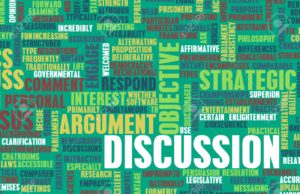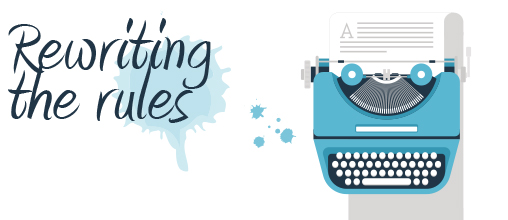You’re in a conversation with your co-worker. Your opinions on the subject at hand are clearly disparate. And you both absolutely and truly believe you are right. How does that conversation go?
“Are too!” “Are not!” “Are too!” “Are not!” (ad nauseum)
Here’s what I think happens. We (yes, you AND I) believe in our heart of hearts that we KNOW whatever, and we know it differently. We may have different views from our Knower/Judger upbringing. We may have different data. Suffice it to say we just see this subject from totally different perspectives.
Once I’ve established that your perspective doesn’t match mine and is thusly and obviously in error, it ceases to be about the issue and begins to be about who will prevail.
The “Are toos!” and “Are nots!” get louder and louder.
It’s the typical playground fight—except that we’re all grownups here and this is in the front office of our employer.
My observation is that typically combatants in a debate like this reach for power in a reactionary way—“I’m under attack, what can I do?” And for the most part we’re likely to defend ourselves. And what’s a good defense? A strong offense. Hence the escalating tones and maybe gestations and possibly violent fisticuffs if allowed to continue. You’ve seen “discussions” escalate to that degree.
So is the “power” in these discussions in the words of the last guy screaming? Or could it be in the voice of the one who somehow scales back the noise level and gets people sharing data and finding common ground?
I’m aware that some readers of this blog might believe that the former holds the power. “He who yells loudest and longest wins.” But do they?
When I’m yelling at you (and I may actually have yelled at some of you!), how do you react? It is almost guaranteed that your reaction is defensive. That your understanding of what “should be” is offended and that you’re made to feel ‘one-down.’ (That’s why the yeller feels powerful).
If I go as far as to set aside what I “know” at the moment and tell you “you’re right”—or in some way allow you to assume a conversational posture that is not focused on defending your intellect—then we stand a chance of sharing data or otherwise figuring out why our interpretations are so different. I don’t have to abandon my understanding. I have to set it aside for the sake of productive discourse. And while it’s sitting over there, not being used as a weapon of my ego, I may actually learn something. Or I may actually be able to teach you something that brings our clashing concepts into synch.
I believe that arguments that have left the realm of discussing the real “whatever” and launched into attack and defense accomplish little. Arguments where one party steps back and allows the other to stop defending themselves stand the best chances of developing clarity.
Which one has the power



